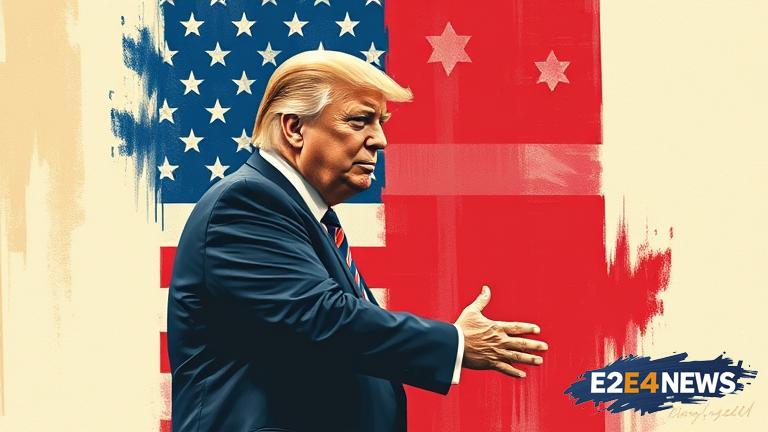The United States has imposed a 25% tariff on Indian goods, in addition to an unspecified penalty, as announced by President Donald Trump. This move has been met with disappointment from the Federation of Indian Chambers of Commerce and Industry (FICCI), which expressed concerns about the potential impact on Indian businesses and the economy. Experts have weighed in on the issue, stating that the tariffs would have a varied impact on different sectors. Some have noted that the tariffs would primarily affect Indian exporters, particularly those in the textiles and chemicals industries. Others have pointed out that the tariffs could lead to higher prices for American consumers, potentially affecting demand for Indian goods. The Indian government has yet to respond to the tariffs, but it is expected to take retaliatory measures to protect its domestic industries. The tariffs are seen as a significant escalation of trade tensions between the US and India, which have been ongoing for several months. The US has been pressuring India to open up its markets and reduce trade barriers, while India has been seeking greater access to the US market for its goods and services. The tariffs are also seen as a reflection of the broader trade tensions between the US and other major economies, including China and the European Union. The impact of the tariffs on the Indian economy is expected to be significant, with some estimates suggesting that it could lead to a loss of thousands of jobs and a decline in economic growth. The Indian rupee has already weakened against the US dollar in response to the tariffs, making it more expensive for Indian businesses to import goods from the US. The tariffs have also sparked concerns about the potential impact on Indian farmers, who rely heavily on exports to the US. The US is one of the largest markets for Indian agricultural products, and the tariffs could lead to a decline in demand and prices for these products. The Indian government has been trying to diversify its exports and reduce its dependence on the US market, but the tariffs are seen as a significant setback to these efforts. The tariffs have also sparked a debate about the impact of protectionism on global trade and the economy. Some have argued that the tariffs are a necessary measure to protect American industries and jobs, while others have pointed out that they could lead to a trade war and have negative consequences for the global economy. The World Trade Organization (WTO) has warned about the dangers of protectionism and the need for countries to work together to promote free trade and economic cooperation. The tariffs have also sparked concerns about the potential impact on the US-India strategic partnership, which has been seen as a key component of the US’s Asia-Pacific strategy. The partnership has been focused on promoting economic cooperation, defense ties, and counter-terrorism cooperation, but the tariffs have raised questions about the future of the relationship. The Indian government has been seeking to strengthen its ties with other countries, including China and the European Union, in response to the tariffs. The tariffs have also sparked a debate about the role of the US in global trade and its commitment to free trade and economic cooperation. The US has been seen as a champion of free trade and economic cooperation, but the tariffs have raised questions about its commitment to these principles. The tariffs have also sparked concerns about the potential impact on the global economy, particularly in the context of the ongoing trade tensions between the US and other major economies. The International Monetary Fund (IMF) has warned about the dangers of trade tensions and the need for countries to work together to promote economic cooperation and stability. The tariffs have also sparked a debate about the impact of trade policies on economic growth and development. Some have argued that the tariffs are a necessary measure to protect American industries and jobs, while others have pointed out that they could lead to a decline in economic growth and development. The tariffs have also sparked concerns about the potential impact on the environment and public health. Some have argued that the tariffs could lead to an increase in pollution and greenhouse gas emissions, particularly if they lead to an increase in production and consumption of goods. The tariffs have also sparked a debate about the role of trade policies in promoting economic development and reducing poverty. Some have argued that the tariffs are a necessary measure to protect American industries and jobs, while others have pointed out that they could lead to a decline in economic development and an increase in poverty.
